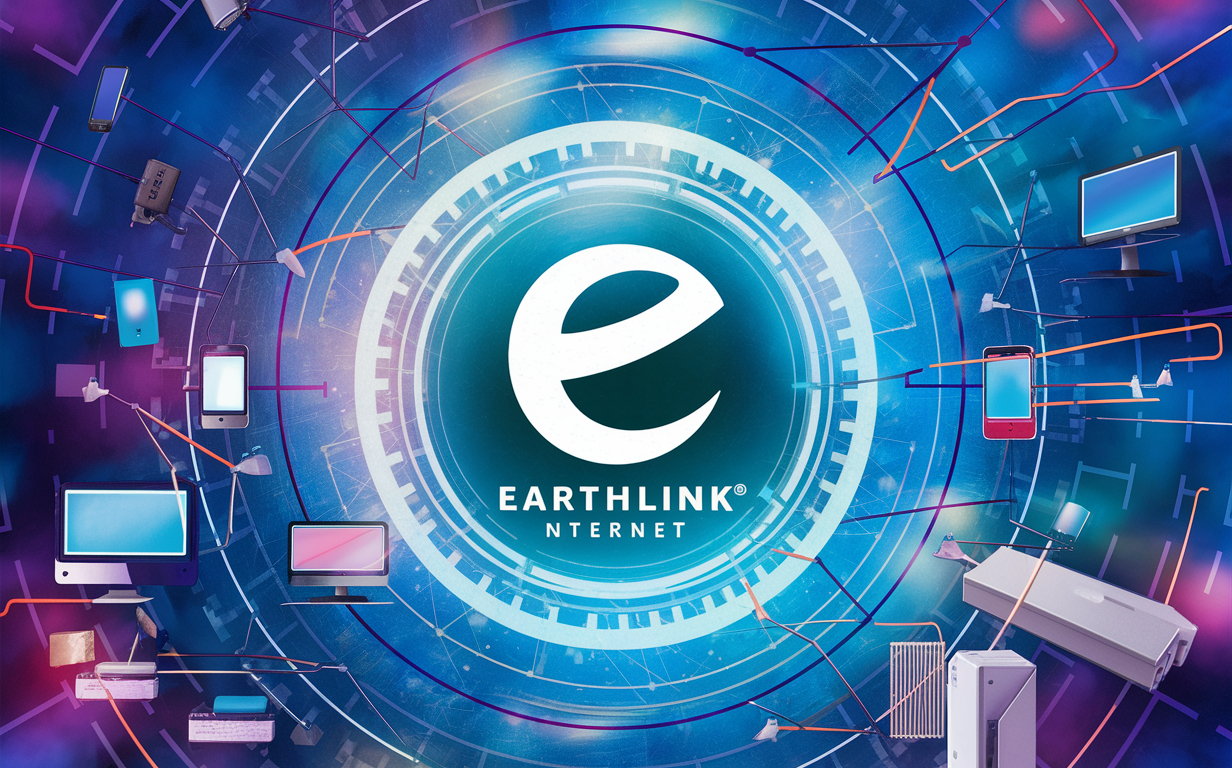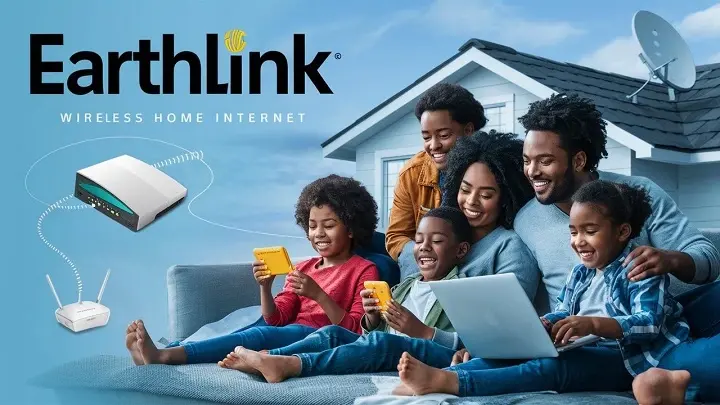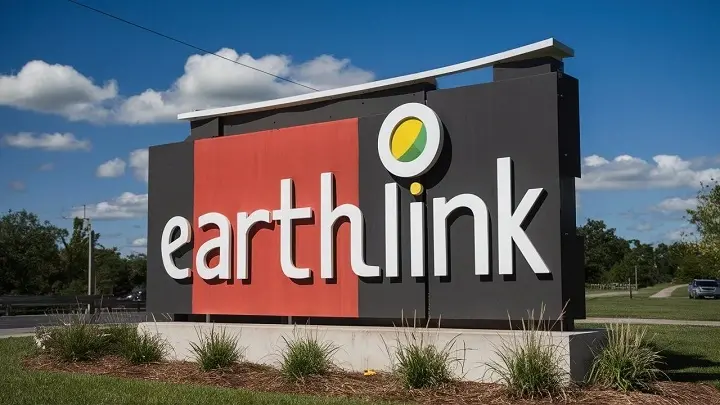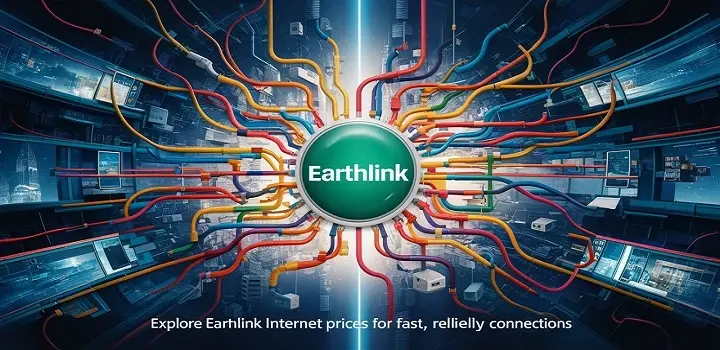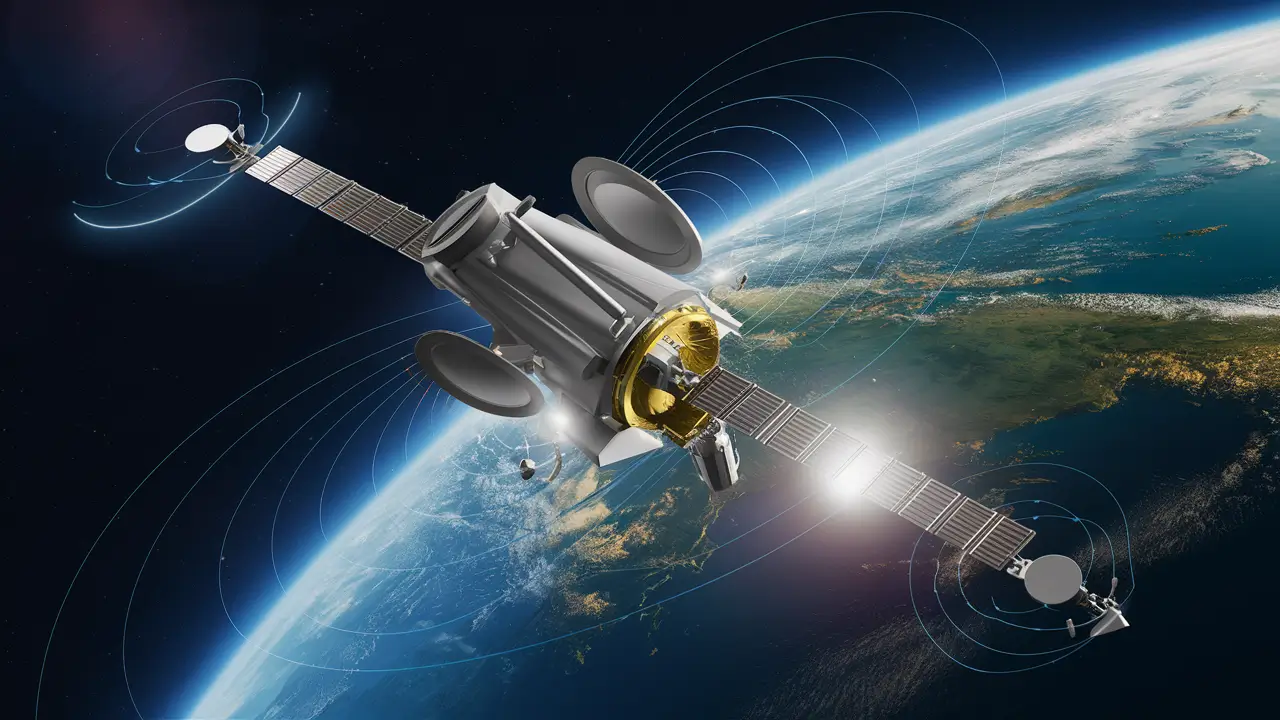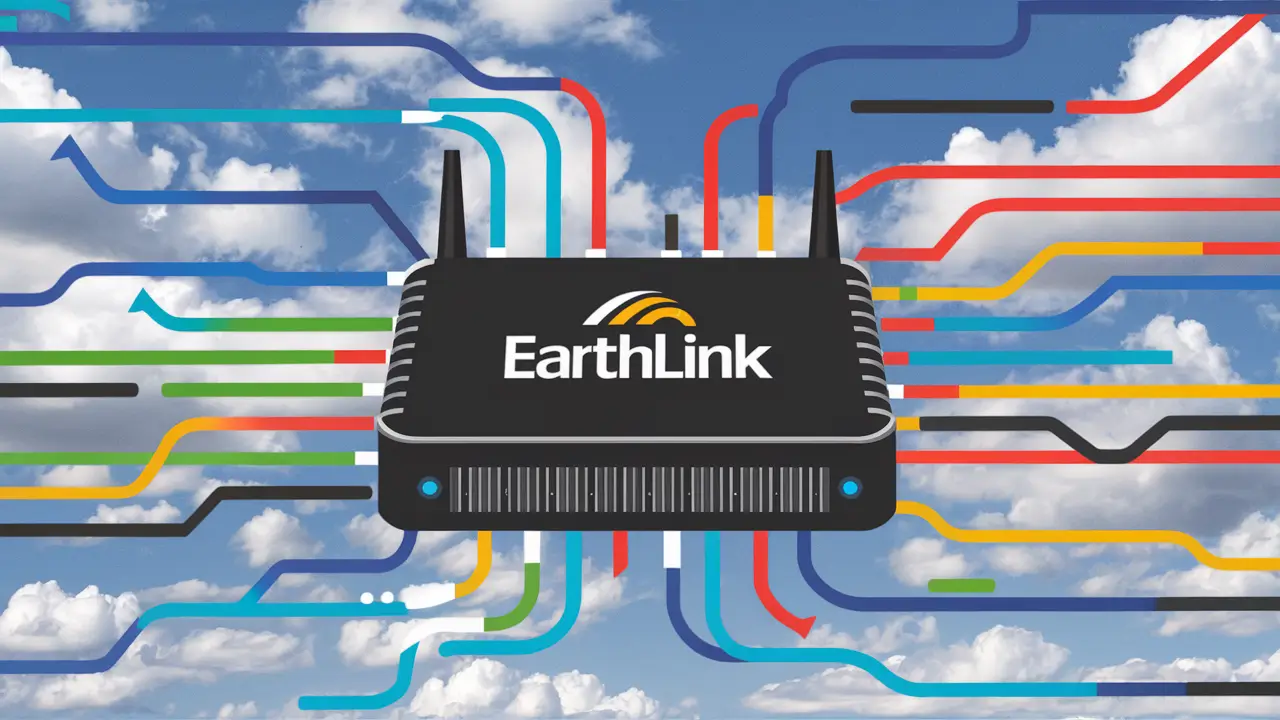How Much Is Earthlink Wireless Internet?

Unlocking the mysteries of EarthLink wireless internet pricing is crucial for informed decision-making. This guide provides a comprehensive breakdown of EarthLink's wireless plans, costs, and factors influencing your final bill, empowering you to choose the best value for your needs in 2025.
Understanding EarthLink Wireless Internet
EarthLink, a long-standing name in the internet service provider (ISP) landscape, offers a variety of internet solutions, including wireless options. Wireless internet, particularly fixed wireless, provides a viable alternative to traditional cable or DSL, especially in areas where fiber optic infrastructure is limited. It works by transmitting internet signals wirelessly from a tower to a receiver installed at your home or business. This technology has seen significant advancements, offering speeds and reliability that rival wired connections for many users. Understanding how EarthLink delivers this service is the first step in deciphering its pricing structure.
Unlike mobile hotspots or satellite internet, fixed wireless typically uses dedicated towers to beam internet to a specific location. This point-to-point or point-to-multipoint system aims to provide a more stable and faster connection. EarthLink leverages this technology to serve a broader customer base, bridging the digital divide in many rural and suburban communities. When considering "how much is EarthLink wireless internet," it's essential to recognize that the pricing isn't a one-size-fits-all answer. It's influenced by a complex interplay of factors, including the specific plan chosen, the speeds offered, data caps, equipment costs, and any promotional offers or installation fees. This guide will delve into each of these elements to provide a crystal-clear picture for 2025.
EarthLink Wireless Pricing Overview (2025)
In 2025, EarthLink's wireless internet plans generally fall into a competitive price range, aiming to offer value for the services provided. While exact figures can fluctuate based on regional availability and specific promotions, users can anticipate monthly costs typically ranging from approximately $50 to $90 for standard plans. These prices usually reflect varying download and upload speeds, as well as data allowances. It's important to note that introductory offers are common, often providing a lower monthly rate for the first 6 to 12 months, after which the price will revert to the standard rate. Therefore, when evaluating "how much is EarthLink wireless internet," always inquire about both the promotional and the standard pricing to understand the long-term cost commitment.
Beyond the base monthly service fee, other potential costs can contribute to the overall expense. These may include one-time installation fees, which can range from $0 to over $100 depending on the complexity of the setup and any current promotions. Equipment rental or purchase is another consideration. EarthLink typically provides a modem/router combo unit, and while sometimes included in the monthly fee, other times it may incur a separate monthly rental charge or an upfront purchase cost. Understanding these ancillary charges is vital for an accurate assessment of the total cost of ownership. For instance, a plan advertised at $60 per month might end up costing closer to $70 or more once installation and equipment fees are factored in, especially if no promotional discounts are applied.
To provide a clearer picture, let's look at some hypothetical pricing structures for 2025, keeping in mind these are illustrative and subject to change:
- Basic Speed Plan: Around $50 - $65 per month. This plan typically offers download speeds suitable for basic web browsing, email, and standard-definition streaming. Data caps might be lower on these plans.
- Mid-Tier Speed Plan: Around $65 - $80 per month. This offers a good balance of speed and data, suitable for HD streaming, online gaming, and supporting multiple devices.
- High-Speed Plan: Around $80 - $90+ per month. This plan provides the fastest available wireless speeds, ideal for heavy data users, large households with many connected devices, and demanding applications like 4K streaming and large file downloads.
These figures are meant to serve as a general guideline. The most accurate pricing will always be determined by your specific address and the plans available in your area. It's also worth noting that EarthLink often bundles services or offers discounts for existing customers of other EarthLink products, which could further influence the final cost.
Factors Influencing EarthLink Wireless Costs
Several key factors contribute to the final price you'll pay for EarthLink wireless internet. Understanding these elements is crucial for accurately answering the question, "How much is EarthLink wireless internet?" for your specific situation.
1. Speed Tiers
The most significant driver of monthly cost is the internet speed you choose. EarthLink offers various speed tiers for its wireless services, catering to different user needs and budgets. Higher download and upload speeds naturally come with a higher price tag. For example, a plan offering up to 50 Mbps download speeds will be less expensive than one offering up to 100 Mbps or more. The bandwidth required for activities like streaming 4K video, online gaming, or supporting numerous connected devices directly correlates with the speed tier needed and, consequently, the cost.
2. Data Caps and Unlimited Data Options
While many ISPs are moving towards unlimited data, some wireless plans, particularly those with lower price points, might still have data caps. Exceeding these caps can result in throttled speeds or additional charges. EarthLink's approach to data limits can significantly impact the overall cost. If a plan has a generous data cap or offers unlimited data, it will generally be priced higher than a plan with a restrictive data cap. For users who stream a lot of video, download large files, or have many connected devices, opting for a plan with unlimited data or a very high cap is essential to avoid unexpected fees and ensure consistent performance, even if it means a slightly higher monthly bill.
3. Equipment Costs
You'll need a modem and router to connect to EarthLink's wireless network. EarthLink typically provides this equipment. The cost associated with this can manifest in a few ways:
- Rental Fees: Some plans may include a monthly rental fee for the modem/router. This fee is added to your monthly bill and can range from $10 to $20 per month.
- Upfront Purchase: Alternatively, EarthLink might offer the option to purchase the equipment outright. This is a one-time cost but can be several hundred dollars.
- Included in Price: In some promotional offers or higher-tier plans, the equipment cost might be bundled into the monthly service fee, making it appear as if there are no separate equipment charges.
When calculating "how much is EarthLink wireless internet," always factor in the equipment cost, whether it's a recurring rental fee or a one-time purchase. Over the long term, purchasing might be more economical if you plan to stay with the service for an extended period.
4. Installation Fees
Setting up your EarthLink wireless internet service usually involves professional installation. This involves mounting an antenna on your home, running cables, and configuring the modem/router. Installation fees can vary significantly. They might range from $0 (often during promotional periods) to $100 or more. Some customers might be able to perform a self-installation for a reduced fee or no fee, but this depends on the complexity of the setup and EarthLink's policies in your specific area. It's wise to inquire about installation costs upfront and look for promotions that waive these fees.
5. Promotional Offers and Discounts
ISPs frequently use promotional offers to attract new customers. These can include:
- Introductory Pricing: A discounted monthly rate for the first 6, 12, or 24 months. After the promotional period ends, the price will increase to the standard rate.
- Bundling Discounts: If EarthLink offers other services (e.g., home phone, security), bundling them might result in a discount on your overall bill.
- Autopay/Paperless Billing Discounts: Some providers offer small monthly discounts for signing up for automatic payments or paperless billing.
These promotions can significantly lower your initial monthly cost, but it's crucial to understand the full price after the promotion expires to budget accurately. Always ask about the standard rate and the duration of any introductory offer.
6. Contract Length
While many modern internet plans are moving towards no-contract options, some EarthLink wireless plans might still require a contract, typically 12 or 24 months. Signing a contract can sometimes secure a lower monthly rate or waive installation fees. However, breaking a contract early usually incurs an early termination fee (ETF), which can be substantial. If you are unsure about your long-term needs or anticipate moving, a no-contract plan, even if slightly more expensive monthly, might be a better financial choice to avoid ETFs.
7. Availability and Location
The exact pricing and available plans for EarthLink wireless internet can vary by geographic location. Service availability depends on EarthLink's tower infrastructure and network capacity in your specific area. Different regions may have different competitive landscapes, which can influence pricing strategies. Furthermore, the physical characteristics of your location (e.g., dense trees, hilly terrain) might affect the type of equipment needed or the ease of installation, potentially impacting costs.
Example Scenario: Cost Breakdown
Let's consider a hypothetical scenario for a new EarthLink wireless customer in mid-2025:
- Plan: EarthLink Wireless - "Home Connect" (Up to 75 Mbps download, 10 Mbps upload, 500 GB data cap)
- Promotional Monthly Price: $59.95 for the first 12 months
- Standard Monthly Price: $74.95 after 12 months
- Installation Fee: $50 (waived with a 12-month contract)
- Equipment: Modem/Router rental included in monthly price
Total Cost for the first 12 months (with contract):
($59.95/month * 12 months) + $0 installation = $719.40
Average Monthly Cost for the first 12 months (with contract): $59.95
Total Cost for the next 12 months (with contract):
($74.95/month * 12 months) + $0 installation = $899.40
Average Monthly Cost for the next 12 months (with contract): $74.95
Total Cost for the first 12 months (no contract):
($59.95/month * 12 months) + $50 installation = $769.40
Average Monthly Cost for the first 12 months (no contract): $64.12
This example illustrates how contract commitment and installation fees can alter the perceived cost, even with the same base monthly price.
EarthLink Wireless Plans and Features
EarthLink's wireless internet offerings are designed to cater to a range of user needs, from light internet users to those who require robust performance for demanding online activities. The specifics of these plans, including speeds, data allowances, and included features, are crucial for understanding the value proposition and ultimately answering "how much is EarthLink wireless internet?" for your household.
Typical Speed Offerings
EarthLink generally provides fixed wireless internet with speeds that are competitive within the market. While the exact maximum speeds can vary by location, common offerings include:
- Basic Plans: Often provide download speeds ranging from 25 Mbps to 50 Mbps. These are suitable for individuals or small households that primarily use the internet for email, social media, web browsing, and standard-definition video streaming. Upload speeds are typically lower, perhaps 5 Mbps.
- Mid-Tier Plans: These plans usually offer download speeds between 50 Mbps and 100 Mbps, with upload speeds around 10 Mbps. This tier is ideal for households with multiple users, HD streaming, online gaming, and more frequent video conferencing.
- High-Speed Plans: For users who need the best performance, EarthLink may offer plans with download speeds exceeding 100 Mbps, sometimes reaching up to 200 Mbps or more, depending on network infrastructure. Upload speeds in this tier are also improved, potentially reaching 15-20 Mbps. These are best for power users, large families, and those who frequently download/upload large files or engage in high-bandwidth activities.
It's important to remember that "up to" speeds are advertised. Actual speeds can be affected by network congestion, distance from the tower, and environmental factors. EarthLink's wireless technology aims to mitigate some of these issues compared to older wireless solutions.
Data Allowances
Data allowances are a critical component of any internet plan and directly influence pricing. In 2025, EarthLink's wireless plans might offer a mix of capped and unlimited data options:
- Capped Data: Some lower-cost plans may come with a monthly data cap, such as 300 GB, 500 GB, or 1 TB. If you exceed this limit, your speeds may be significantly reduced (throttled) for the remainder of the billing cycle, or you might incur overage charges. This is a key factor to consider when evaluating "how much is EarthLink wireless internet," as exceeding caps can lead to unexpected costs.
- Unlimited Data: Higher-tier plans or plans offered in specific markets may include unlimited data. This provides peace of mind for heavy users, eliminating concerns about exceeding limits and facing throttled speeds or extra fees. Unlimited data plans are typically priced higher to reflect their enhanced value.
When choosing a plan, accurately assess your household's typical data usage. Online tools and your current ISP's billing statements can help you estimate this. For example, streaming one hour of HD video consumes roughly 3 GB of data. Downloading a large game can easily use 50-100 GB.
Included Equipment and Features
EarthLink's wireless service typically includes the necessary equipment for connectivity. This usually consists of an outdoor antenna (mounted on your roof or exterior wall) and an indoor modem/router unit. As discussed earlier, the cost of this equipment can be a one-time purchase, a monthly rental fee, or included in the base price of the plan. Most provided routers offer standard Wi-Fi capabilities, supporting multiple devices simultaneously. Advanced features like mesh Wi-Fi capabilities or parental controls might be available as add-ons or included in premium packages.
Contract Options
EarthLink may offer both contract and no-contract options for its wireless internet services.
- Contract Plans: Often require a commitment of 12 or 24 months. These plans might come with a lower monthly rate, waived installation fees, or other incentives. However, they typically include an Early Termination Fee (ETF) if you cancel service before the contract term is up.
- No-Contract Plans: Offer flexibility, allowing you to cancel service at any time without penalty. These plans might have a slightly higher monthly cost or a standard installation fee, but they provide freedom from long-term commitments.
The choice between a contract and a no-contract plan can influence the overall cost and is an important consideration when determining "how much is EarthLink wireless internet" for your specific needs.
Bundling Opportunities
While EarthLink is primarily known for internet services, they may offer bundled packages that include home phone service or other communication solutions. Bundling can sometimes lead to discounted pricing on individual services, making the overall monthly bill more economical. It's worth inquiring about any available bundles if you are considering multiple services.
Example Plan Details (Hypothetical 2025)
Here's a look at a hypothetical mid-tier plan:
EarthLink Wireless - "Family Connect"
- Advertised Speeds: Up to 100 Mbps download / 10 Mbps upload
- Data Allowance: Unlimited data
- Monthly Price (Promotional): $69.95 for the first 12 months
- Monthly Price (Standard): $84.95 after 12 months
- Equipment: Modem/router included (no separate rental fee)
- Installation Fee: $75 (waived with a 12-month contract)
- Contract: Optional (12-month contract available)
This plan offers a good balance for many households, providing sufficient speed for multiple users and unlimited data to avoid usage concerns. The decision between a contract and no-contract will impact the upfront and overall costs.
Comparing EarthLink to Competitors
When evaluating "how much is EarthLink wireless internet," it's essential to benchmark its pricing and offerings against other providers, especially those offering similar fixed wireless or alternative internet solutions. The competitive landscape in 2025 is dynamic, with various ISPs vying for market share, particularly in areas underserved by traditional cable or fiber.
Fixed Wireless Competitors
Several companies specialize in fixed wireless internet. These providers often leverage similar technologies to EarthLink, aiming to serve rural and suburban areas. Competitors might include companies like:
- Verizon 5G Home Internet: Offers high speeds in select areas, often with unlimited data and competitive pricing, sometimes starting around $50-$60/month with promotions.
- T-Mobile Home Internet: Utilizes 5G network for home internet, typically offering unlimited data at a flat rate, often around $50-$65/month, with no equipment fees.
- AT&T Fixed Wireless Internet: Provides internet access in rural areas where DSL or fiber is unavailable, though speeds and data caps can be more restrictive than 5G options. Pricing can vary significantly.
- Local/Regional ISPs: Many smaller, regional providers offer fixed wireless services. Their pricing and performance can be highly localized.
When comparing, look beyond just the monthly price. Consider the advertised speeds, actual speeds experienced (based on reviews), data caps, equipment fees, installation costs, and contract terms. EarthLink's pricing, typically in the $50-$90 range for standard plans, positions it competitively within this fixed wireless segment. However, providers like T-Mobile and Verizon have aggressively entered the market with often simpler, flat-rate pricing structures and unlimited data that can be very appealing.
Satellite Internet Competitors
For areas where even fixed wireless isn't available, satellite internet is often the only option. Providers like HughesNet and Viasat offer internet via satellite dishes. However, satellite internet is generally characterized by:
- Higher Latency: Due to the vast distance signals travel.
- Lower Speeds: Compared to fixed wireless or wired options.
- Stricter Data Caps: Often with expensive overage fees.
- Similar or Higher Pricing: For the performance offered.
While satellite might be the only choice for some, it's typically not a direct competitor in terms of performance or value for those who have access to fixed wireless options like EarthLink.
DSL and Cable Internet Providers
In areas where EarthLink wireless is an option, it's likely that some form of DSL or cable internet is also available.
- DSL: Often slower and less reliable than fixed wireless, especially over longer distances. Pricing can be comparable to lower-tier EarthLink plans, but speeds are usually much lower.
- Cable: Can offer higher speeds and lower latency than fixed wireless, often with competitive pricing. However, cable availability is limited to areas with existing cable infrastructure. If cable is available, it might offer a better value proposition in terms of speed and performance for a similar or slightly higher monthly cost than EarthLink's higher-tier wireless plans.
Key Comparison Metrics
To effectively compare, focus on these metrics:
| Feature | EarthLink Wireless (Typical 2025) | 5G Home Internet (e.g., T-Mobile, Verizon) | Satellite Internet (e.g., HughesNet, Viasat) | Cable Internet (e.g., Spectrum, Xfinity) |
|---|---|---|---|---|
| Monthly Price Range | $50 - $90+ | $50 - $70 (often flat rate) | $65 - $150+ | $50 - $100+ (varies by speed) |
| Advertised Download Speeds | 25 Mbps - 200+ Mbps | 100 Mbps - 300+ Mbps | 25 Mbps - 100 Mbps | 100 Mbps - 1000+ Mbps |
| Data Caps | May have caps on lower tiers; unlimited often available | Typically unlimited | Strict caps, often with throttling/overages | Often unlimited or very high caps |
| Latency | Moderate | Low to Moderate | High | Low |
| Equipment Costs | Rental fee or purchase option | Usually free | Included (but service is costly) | Rental fee or purchase option |
| Installation Fees | May apply, often waived with contract | Typically free | May apply | May apply |
| Contract Required | Optional | No | Often | Optional or required for best price |
EarthLink's strength lies in its established presence and potentially broader availability in areas where newer 5G home internet might not yet reach. However, the simplicity and often lower price point of 5G home internet from major carriers are significant competitive advantages. If cable is available, it often provides the best combination of speed, reliability, and value.
How to Get the Best Deal on EarthLink Wireless
Navigating the pricing of any internet service can feel like a puzzle, but with a strategic approach, you can secure the best possible deal on EarthLink wireless internet. Understanding the nuances of their plans and employing smart shopping tactics will ensure you get the most value for your money in 2025.
1. Verify Availability at Your Specific Address
The first and most crucial step is to check EarthLink's website or call their sales department to confirm service availability at your exact address. Pricing and plan options can vary significantly even within the same town. Don't rely on general assumptions; accurate availability is the foundation for any deal.
2. Understand Your Needs: Speed and Data
Before even looking at prices, assess your household's internet usage.
- How many people use the internet simultaneously?
- What activities do you primarily engage in? (e.g., basic browsing, HD/4K streaming, online gaming, video conferencing, large file downloads/uploads)
- What is your estimated monthly data usage?
Overestimating your needs leads to paying for more than you use, while underestimating can result in slower speeds or exceeding data caps, incurring extra costs. Choose a plan that closely matches your requirements. A plan that offers "up to 100 Mbps" might be sufficient if you only need 50 Mbps, saving you money.
3. Inquire About All Fees and Charges
When asking "How much is EarthLink wireless internet?", make sure you're getting the full picture. Ask specifically about:
- Monthly Service Fee: Get the exact price.
- Promotional Pricing: Understand the duration and the standard price after the promotion ends.
- Installation Fees: Are there any? Can they be waived?
- Equipment Costs: Is there a monthly rental fee? What is the purchase price?
- Taxes and Surcharges: These can add a significant percentage to your bill.
Don't be afraid to ask clarifying questions until you are completely satisfied.
4. Leverage Promotional Offers
EarthLink, like most ISPs, runs various promotions. These can include:
- Introductory Discounts: As mentioned, these lower your monthly bill for a set period. Always negotiate for the best possible introductory rate.
- Waived Fees: Promotions often waive installation fees or offer a free modem rental for a limited time.
- Bundling Discounts: If you need other services like home phone, inquire about bundled packages that might offer savings.
Be proactive in asking about current deals. Sometimes, simply mentioning a competitor's offer can prompt EarthLink to provide a better deal.
5. Consider Contract vs. No-Contract
Evaluate the trade-offs:
- Contract Plans: Often offer lower monthly rates and may waive installation fees. However, they lock you in and come with ETFs if you cancel early. If you are confident you'll stay for the contract term and the savings are significant, this can be a good option.
- No-Contract Plans: Provide flexibility but might have a slightly higher monthly cost or standard installation fees. Ideal if you anticipate moving or are hesitant about long-term commitments.
Calculate the total cost over the contract period (including potential ETFs) versus the no-contract option to see which is truly more economical for your situation.
6. Negotiate
Don't underestimate the power of negotiation. Internet service providers often have room to move on pricing, especially for new customers. If you have competing offers from other providers, mention them. You can also try negotiating:
- For a lower monthly rate, especially after a promotional period ends.
- To waive installation or equipment fees.
- For a temporary upgrade in speed or data allowance.
Be polite but firm. Highlight your loyalty if you're an existing customer or your strong interest in becoming one. The worst they can say is no.
7. Read the Fine Print
Before signing any agreement, thoroughly read the terms and conditions. Pay close attention to sections detailing:
- Price increases after promotional periods.
- Data usage policies and overage charges.
- Early termination fees.
- Equipment return policies.
Understanding the fine print prevents surprises and ensures you're getting the deal you expect.
8. Look for Online-Exclusive Deals
Sometimes, ISPs offer special discounts or promotions exclusively for customers who sign up online. Check EarthLink's website for any such online-only offers.
9. Consider Timing
While not always feasible, sometimes ISPs offer better deals during specific times of the year (e.g., holidays, back-to-school season) or when they are launching new services or expanding their network. Keep an eye out for these opportunities.
Step-by-Step Deal-Finding Guide
- Step 1: Visit EarthLink's website and enter your address to check availability and see listed plans and prices.
- Step 2: Note down the speeds, data caps, and monthly prices for plans that fit your needs.
- Step 3: Call EarthLink's sales department. Mention the online offers and ask if there are any better deals available, especially for new customers.
- Step 4: Inquire about installation fees, equipment rental/purchase costs, and contract terms. Ask if any of these can be waived or reduced.
- Step 5: If you have quotes from competitors, use them as leverage during your negotiation.
- Step 6: Clarify the exact price you will pay after any promotional period ends.
- Step 7: Once you've negotiated the best possible terms, ask for a summary of the agreement in writing (email is fine) before committing.
- Step 8: Carefully review the written agreement and the fine print before signing.
By following these steps, you can move beyond simply asking "How much is EarthLink wireless internet?" to actively securing the most cost-effective and suitable plan for your household.
Troubleshooting Common Pricing Questions
Even with detailed guides, customers often have specific questions about EarthLink wireless internet pricing. Addressing these common queries can help clarify the total cost and ensure a transparent understanding of what you're paying for.
Why is the price higher than advertised?
This is perhaps the most frequent point of confusion. The advertised price often reflects:
- Promotional Rates: As discussed, these are temporary. The price increase after the promotional period is standard. Always confirm the duration of the promo and the standard rate.
- Additional Fees: Installation fees, equipment rental charges, taxes, and regulatory fees are often not included in the headline price.
- Data Overage Charges: If your plan has a data cap and you exceed it, overage fees can significantly inflate your bill.
- Service Add-ons: Any premium features, static IP addresses, or other optional services will increase the monthly cost.
Solution: Always ask for a complete breakdown of all potential charges, including taxes and fees, and understand the price after any promotional period expires. Review your first few bills carefully to ensure accuracy.
Are there any hidden fees?
While reputable providers aim for transparency, "hidden" fees can sometimes arise from terms and conditions that aren't fully read or understood. Common areas where fees might seem "hidden" include:
- Early Termination Fees (ETFs): If you cancel a contract early, ETFs can be substantial.
- Equipment Malfunction/Loss Fees: If you rent equipment and it's damaged, lost, or not returned properly, you may be charged for its replacement cost.
- Late Payment Fees: Standard for most services, but important to be aware of.
- Service Change Fees: Some providers may charge a fee if you upgrade or downgrade your plan.
Solution: Request a comprehensive list of all possible fees associated with the service, including ETFs and equipment policies, before signing up. Read the contract carefully.
How much does installation really cost?
Installation costs for EarthLink wireless can range from $0 (with promotions or contracts) to over $100. The fee depends on the complexity of the installation, the equipment required, and current promotions. Some installations might be simple self-installs, while others require a technician to mount an outdoor antenna and run wiring.
Solution: Ask if a professional installation is mandatory. If so, inquire about the exact cost and if it can be waived or discounted through a contract or promotion. If self-installation is an option, understand the requirements and potential savings.
What happens if I exceed my data limit?
This depends entirely on the specific EarthLink wireless plan you choose.
- Throttling: Most commonly, exceeding a data cap will result in significantly reduced internet speeds for the remainder of the billing cycle. This makes activities like streaming or gaming very difficult.
- Overage Charges: Some plans might charge per gigabyte (GB) used over the limit. These charges can be expensive and quickly increase your bill.
- Unlimited Data Plans: If you opt for an unlimited data plan (often at a higher monthly cost), this concern is eliminated.
Solution: Understand your plan's data allowance and the consequences of exceeding it. If you are a heavy user, prioritize plans with unlimited data or very high caps. Monitor your data usage through EarthLink's online portal or app.
Can the price increase after the first year?
Yes, almost certainly. Most introductory offers from ISPs are designed to attract new customers with a lower rate for a limited time (typically 6, 12, or 24 months). After this period, the monthly price will revert to the provider's standard rate, which is usually higher. This is a standard practice across the industry.
Solution: Always ask for the standard monthly rate that applies after the promotional period ends. Budget for this higher cost to avoid financial surprises. Consider negotiating a longer promotional period or a lower standard rate if possible.
Are there discounts for bundling services?
EarthLink may offer discounts if you bundle their internet service with other offerings, such as home phone service. Bundling can sometimes provide a more convenient single bill and a slight reduction in overall cost compared to subscribing to each service separately.
Solution: Inquire directly with EarthLink sales representatives about any available bundling options and the associated savings. Compare the bundled price to the cost of individual services from EarthLink and other providers.
What if I need faster speeds later? Can I upgrade?
Generally, yes. Most ISPs allow customers to upgrade their internet speed tier. The process usually involves contacting customer service and may require a change in your monthly bill. Sometimes, upgrading might involve a small fee or a new promotional offer.
Solution: Confirm the process and any associated costs for upgrading your speed tier with EarthLink customer service. Understand if upgrading mid-contract impacts your agreement.
Is EarthLink wireless available in my rural area?
EarthLink specifically targets areas underserved by traditional broadband, including many rural locations. Their fixed wireless technology is designed to bridge this gap. However, availability is not guaranteed and depends on the proximity and line-of-sight to an EarthLink transmission tower.
Solution: The most reliable way to check is by entering your full address on the EarthLink website or speaking with a sales representative. They can confirm if service is available and what specific plans and speeds you can expect.
By understanding these common pricing questions and their solutions, consumers can more confidently navigate the costs associated with EarthLink wireless internet and make an informed decision that aligns with their budget and needs.
Conclusion
Determining "how much is EarthLink wireless internet" in 2025 involves looking beyond the advertised monthly price. While EarthLink's wireless plans typically range from $50 to $90 per month, the final cost is shaped by crucial factors such as speed tiers, data allowances, equipment fees, installation charges, and promotional periods. Competitors, particularly those offering 5G home internet, present compelling alternatives with often simpler pricing and unlimited data. To secure the best deal, diligent research is key: verify availability at your specific address, accurately assess your household's internet needs, inquire about all potential fees, leverage available promotions, and consider the long-term implications of contract versus no-contract plans. By proactively negotiating and thoroughly understanding the terms of service, you can ensure that EarthLink wireless internet provides a cost-effective and reliable solution for your connectivity needs.
